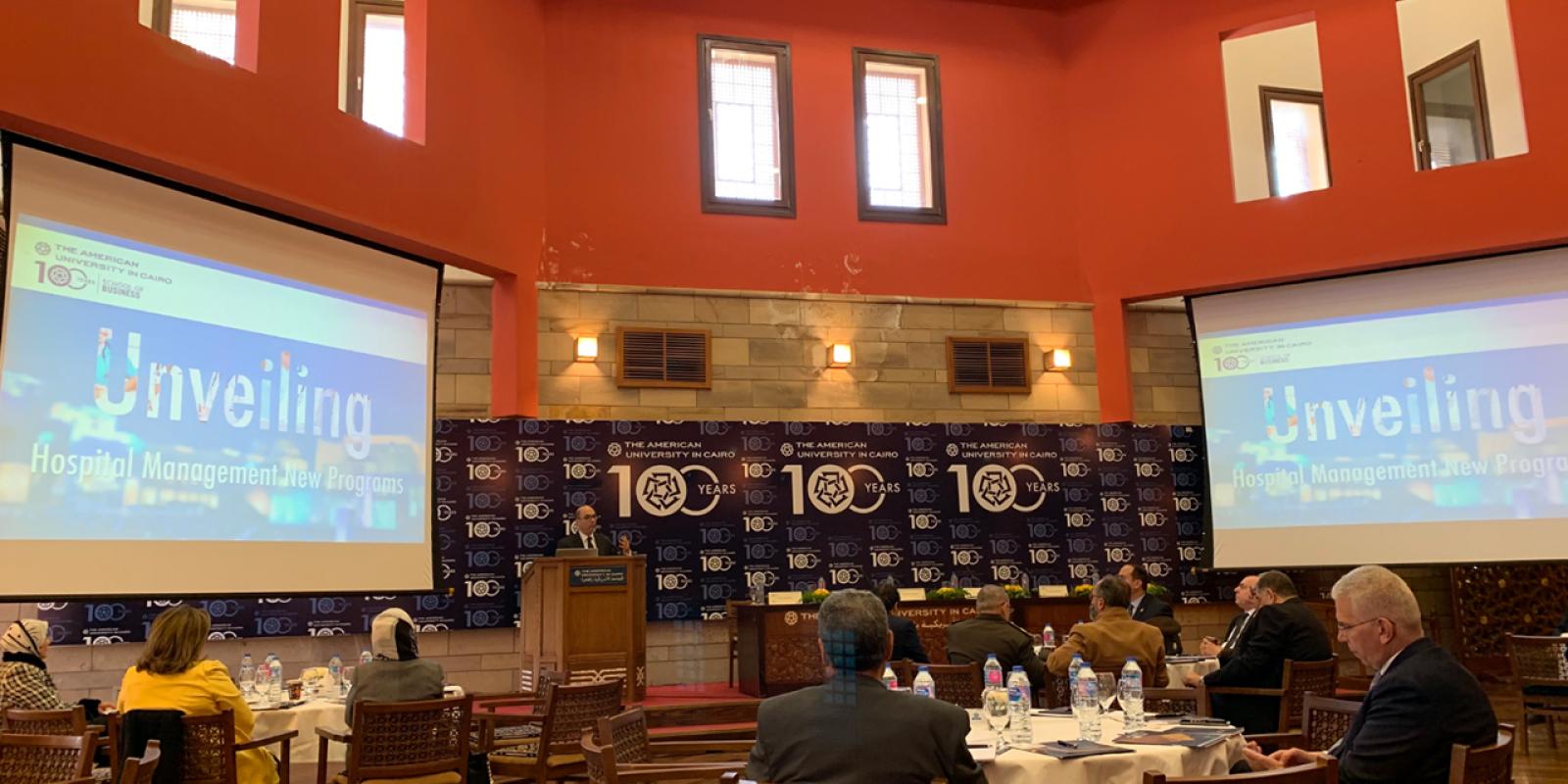
Supporting Egypt’s Healthcare Industry Through AUC School of Business Executive Education’s Hospital Management Programs
On January 23, the AUC School of Business Executive Education officially launched its two revamped hospital management programs, designed to inspire healthcare professionals through equipping them with innovative techniques and creative approaches that refine the provision of healthcare services.
The healthcare industry of the 21st century has one of the most complex structures relative to other global industries, with ever-changing relationships between patients, physicians, hospitals, insurers, communities, and governments. Service providers, whether in public or private organizations, are trying to adapt to the new trends.
Correspondingly, the previously existing AUC School of Business Executive Education’s Hospital Management Programs were revamped, out of the School’s continuous commitment to improvement. After a long process of meticulous and rigorous planning and designing for the new programs, they were launched in the presence of healthcare professionals from different areas.
“Continuous improvement at the School of Business applies not only to the programs but also to the way they are planned, implemented and upgraded to cope with the surrounding changes in both Egypt and the world. The one size fits all model doesn’t fit in today’s world, so we have to cope with the needs of everyone”, elaborated dean Sherif Kamel on the rationale behind the revamped programs.
With regards to Egypt in specific, “the main issue in the healthcare system stems from improper management and the notion that the management team has to be from the medical arena. In fact, what’s more, important is that they need to have the qualifications to manage”, explains AUC counselor Ashraf Hatem.
Aiming to deliver the best-in-class curriculums, the program designs came about in a distinctive manner that allowed subject matter experts who are not necessarily educators or instructors to provide their input and pass on their experience to the instructors who are to lead the programs. Blending both theory and practice and including a diverse program design committee, the programs pave the path to implementing excellent levels of healthcare services.
Following the programs launch, an open discussion on the current major challenges facing the healthcare sector was held featuring panelists Adel Adawy, former Minister of Health and Population and Secretary-General of Medical Studies Sector in the Supreme Council of Universities, Ali Sabbour, head of the Medical Education Counsel, faculty of medicine, Ain Shams University, Kamal Attia, deputy president of Tanta University, Hossam Abdelghafar, secretary-general of the Supreme Council of Universities’ Hospitals and Ahmed El Sobky, assistant to Minister for Monitoring and executive director of the Universal Medical Insurance Program, Ministry of Health and Population.
Highlights of the major challenges in Egypt at the moment included the reluctancy of good competencies to work in government hospitals, lack of organizational skills, and the common perception that a physician who works in healthcare management is one who has failed in their career as a medical practitioner and therefore resorted to administration.
Throughout the discussions, it became apparent that the majority of issues relating to the hospital management sector are in essence due to the lack of proper management, which was agreed to be the basis of quality and efficiency in healthcare. With that in mind, the new programs provide both an excellent level of knowledge and an excellent level of practice, with 40 hours of practical training in hospitals. Furthermore, participants are involved in the business setting through business acumen courses; design thinking, emotional intelligence, and crisis management.
“Health economics is crucial in today’s healthcare system. The notion that every pound invested in health has a very high return, both on general health and productivity, is very much true”, stated Adel Adawy, former Minister of Health and Population and Secretary-General of Medical Studies Sector in the Supreme Council of Universities.
With that, the School hopes to achieve tangible outcomes in the healthcare sector that are felt in the Egyptian society, and that are a major return on investment for the participants of the programs that are designed to equip them to reach a high level of proficiency that will not only develop their careers but help them further make an impact.
